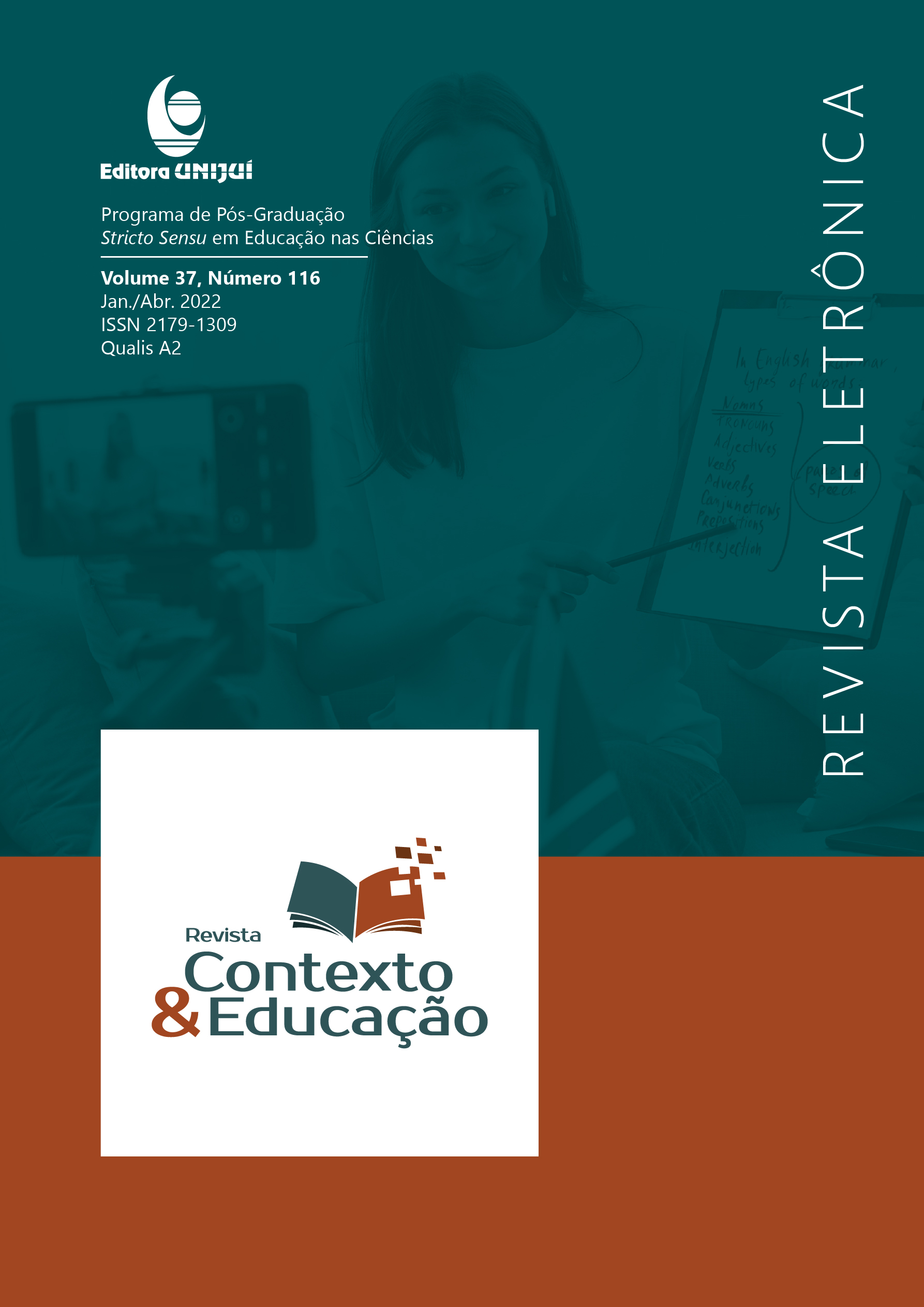SABERES DOCENTES NA FORMAÇÃO INICIAL DE PROFESSORES DE QUÍMICA: NOVAS COMPREENSÕES À LUZ DA ANÁLISE TEXTUAL DISCURSIVA
KNOWLEDGE TEACHERS IN THE INITIAL TRAINING OF CHEMISTRY TEACHERS: NEW UNDERSTANDINGS IN THE LIGHT OF DISCURSIVE TEXTUAL ANALYSIS
DOI:
https://doi.org/10.21527/2179-1309.2022.116.11489Keywords:
Saberes docentes, referencial metodológico, estágio supervisionado, Análise Textual DiscursivaAbstract
This paper aims to present the consequences of a study on Teaching Knowledge mobilized by future Chemistry teachers, emphasizing the steps, results and new understandings made possible by an analytical movement based on the assumptions of the Textual Discourse Analysis. The undergraduates' reports collected during the research process were analyzed under categories based on the typology of the teaching knowledge by Tardif. From this analysis process, given the breadth of the categories, subcategories also emerged, which enabled us to show in a more precise way what aspects the undergraduate students mobilized when thinking about teaching planning and action in the classroom. In addition, this study showed the gaps present in this process related to the domain of scientific concepts, to the pedagogical mediation of knowledge, to the preparation and execution of plans in the concrete reality of schools and to the time of practice involved in the re-elaboration of this knowledge. Such conclusive considerations point out guiding paths for teacher educators in the construction of teacher education spaces that really take into account the complexity of teaching practice, aiming to contribute to the professionalization movement advocated by research in the area with a focus on teacher education.
Downloads
Published
How to Cite
Issue
Section
License
By publishing in Revista Contexto & Educação, authors agree to the following terms:
All works are published under the Creative Commons Attribution 4.0 International License (CC BY 4.0), which allows:
Sharing — to copy and redistribute the material in any medium or format;
Adaptation — to remix, transform, and build upon the material for any purpose, even commercially.
These permissions are irrevocable, provided that the following terms are respected:
Attribution — authors must be properly credited, a link to the license must be provided, and any changes made must be indicated.
No additional restrictions — no legal or technological measures may be applied that legally restrict others from doing anything the license permits.
Notices:
The license does not apply to elements that are in the public domain or covered by legal exceptions.
The license does not grant all necessary rights for specific uses (e.g., image rights, privacy, or moral rights).
The journal is not responsible for the opinions expressed in the articles, which are the sole responsibility of the authors. The Editor, with the support of the Editorial Board, reserves the right to suggest or request modifications when necessary.
Only original scientific articles presenting research results of interest that have not been previously published or simultaneously submitted to another journal with the same purpose will be accepted.
Mentions of trademarks or specific products are intended solely for identification purposes and do not imply any promotional relationship by the authors or the journal.
License Agreement (for articles published from October 2025): Authors retain the copyright to their article and grant Revista Contexto & Educação the right of first publication.


